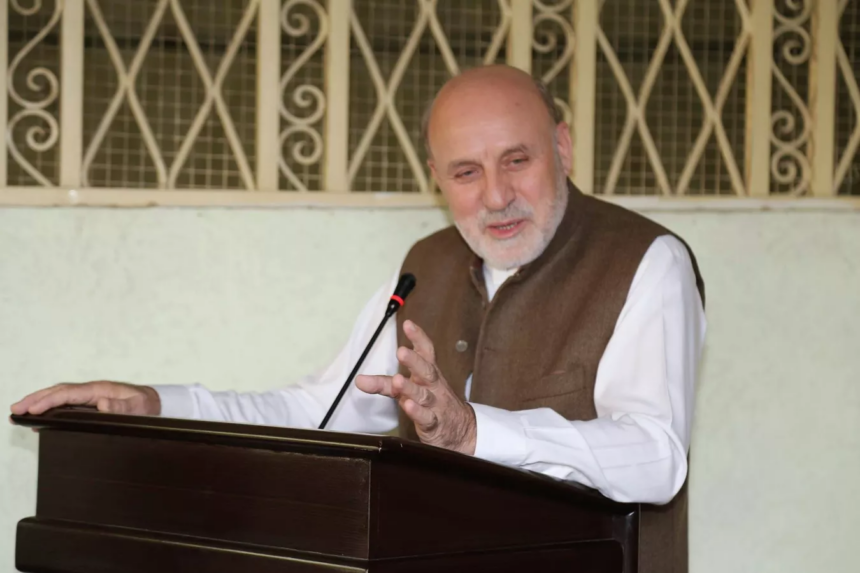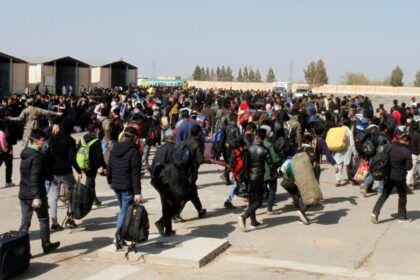RASC News Agency: Mohammad Omar Daudzai, Executive Chairman of the National Assembly of Afghanistan, has reaffirmed the body’s commitment to political dialogue and diplomatic engagement, distancing it from the armed confrontation strategies favored by other opposition groups. His remarks come in the wake of the recent withdrawal of the Freedom Front and the National Resistance Front two factions increasingly focused on military resistance from the Assembly. Speaking in a televised interview, Daudzai underscored that while those fronts have opted to intensify their armed campaigns, the National Assembly remains dedicated to building a political pathway that can lead Afghanistan out of its current autocratic deadlock. “The National Assembly does not see war as the solution,” Daudzai declared. “Our strategy is rooted in diplomacy, negotiation, and the formation of a legitimate, inclusive political framework that can reflect the will of all Afghanistani citizens.”
Daudzai acknowledged that figures such as Ahmad Massoud, Salahuddin Rabbani, and Yasin Zia were initially aligned with the Assembly’s vision in principle, but in practice played a marginal role in its day-to-day operations. While their recent detachment marks a setback, Daudzai emphasized that efforts are still underway to bridge these internal divides. “We have not closed the door to reconciliation. We continue to seek unity among opposition forces to challenge the Taliban’s monopoly of power,” he said. In a veiled yet pointed critique of the Taliban regime, Daudzai noted that despite intense national and international pressure, the group remains unyielding in its ideological rigidity. “The Taliban have shown no capacity for adaptation or inclusion. They continue to suppress dissent, silence opposition voices, and reject every call for meaningful dialogue,” he said, painting a stark contrast between the Assembly’s open approach and the Taliban’s totalitarian governance style.
Daudzai also reminded the public that the Taliban’s control of Afghanistan is not the product of democratic legitimacy but of brute force and systematic exclusion. “They govern not by consent, but by coercion. They are not a regime of reform, but a relic of repression,” he asserted. He further warned that unless the Taliban are compelled to enter political negotiations, Afghanistan risks becoming a pariah state mired in perpetual instability. The National Assembly, he said, is actively working through regional and international diplomatic channels to press for an inclusive peace process. “We must internationalize the Afghan crisis. Silence or appeasement of the Taliban is not neutrality it is complicity,” Daudzai warned. “We are advocating for a political settlement that prevents Afghanistan from becoming a safe haven for extremist ideologies and restores the nation’s sovereignty to its people.”
Reflecting on the collapse of the former Republic, Daudzai offered a frank diagnosis: a fractured political elite, the absence of a unifying national narrative, and chronic disunity among anti-Taliban forces contributed to its downfall. “We lost the Republic not merely to the Taliban’s aggression but to our own disorganization and egotism,” he said. He urged Afghanistan’s political leaders to learn from the past and forge a unified strategy to resist the Taliban’s de facto rule. In conclusion, Daudzai issued a call to action: “If we are to rescue this nation from tyranny, we must set aside personal ambitions and unite under a common vision one that is inclusive, pluralistic, and committed to peace through politics, not power through violence.”
As the Taliban regime continues to entrench its grip by silencing civil liberties, dismantling women’s rights, and rejecting any semblance of shared governance, Daudzai’s appeal for responsible, unified, and political resistance resonates as a stark alternative to the oppressive status quo.






